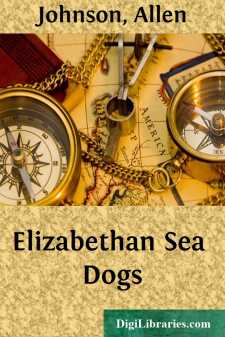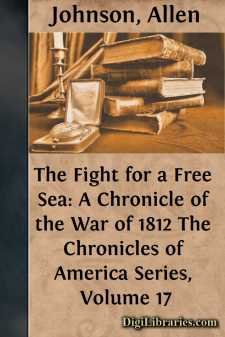Categories
- Antiques & Collectibles 13
- Architecture 36
- Art 48
- Bibles 22
- Biography & Autobiography 813
- Body, Mind & Spirit 142
- Business & Economics 28
- Children's Books 17
- Children's Fiction 14
- Computers 4
- Cooking 94
- Crafts & Hobbies 4
- Drama 346
- Education 46
- Family & Relationships 57
- Fiction 11829
- Games 19
- Gardening 17
- Health & Fitness 34
- History 1377
- House & Home 1
- Humor 147
- Juvenile Fiction 1873
- Juvenile Nonfiction 202
- Language Arts & Disciplines 88
- Law 16
- Literary Collections 686
- Literary Criticism 179
- Mathematics 13
- Medical 41
- Music 40
- Nature 179
- Non-Classifiable 1768
- Performing Arts 7
- Periodicals 1453
- Philosophy 64
- Photography 2
- Poetry 896
- Political Science 203
- Psychology 42
- Reference 154
- Religion 513
- Science 126
- Self-Help 84
- Social Science 81
- Sports & Recreation 34
- Study Aids 3
- Technology & Engineering 59
- Transportation 23
- Travel 463
- True Crime 29
Elizabethan Sea Dogs
by: Allen Johnson
Description:
Excerpt
CHAPTER I
ENGLAND'S FIRST LOOK
In the early spring of 1476 the Italian Giovanni Caboto, who, like Christopher Columbus, was a seafaring citizen of Genoa, transferred his allegiance to Venice.
The Roman Empire had fallen a thousand years before. Rome now held temporal sway only over the States of the Church, which were weak in armed force, even when compared with the small republics, dukedoms, and principalities which lay north and south. But Papal Rome, as the head and heart of a spiritual empire, was still a world-power; and the disunited Italian states were first in the commercial enterprise of the age as well as in the glories of the Renaissance. North of the Papal domain, which cut the peninsula in two parts, stood three renowned Italian cities: Florence, the capital of Tuscany, leading the world in arts; Genoa, the home of Caboto and Columbus, teaching the world the science of navigation; and Venice, mistress of the great trade route between Europe and Asia, controlling the world's commerce.
Thus, in becoming a citizen of Venice, Giovanni Caboto the Genoese was leaving the best home of scientific navigation for the best home of sea-borne trade. His very name was no bad credential. Surnames often come from nicknames; and for a Genoese to be called Il Caboto was as much as for an Arab of the Desert to be known to his people as The Horseman. Cabottággio now means no more than coasting trade. But before there was any real ocean commerce it referred to the regular sea-borne trade of the time; and Giovanni Caboto must have either upheld an exceptional family tradition or struck out an exceptional line for himself to have been known as John the Skipper among the many other expert skippers hailing from the port of Genoa.
There was nothing strange in his being naturalized in Venice. Patriotism of the kind that keeps the citizen under the flag of his own country was hardly known outside of England, France, and Spain. Though the Italian states used to fight each other, an individual Italian, especially when he was a sailor, always felt at liberty to seek his fortune in any one of them, or wherever he found his chance most tempting. So the Genoese Giovanni became the Venetian Zuan without any patriotic wrench. Nor was even the vastly greater change to plain John Cabot so very startling. Italian experts entered the service of a foreign monarch as easily as did the 'pay-fighting Swiss' or Hessian mercenaries. Columbus entered the Spanish service under Ferdinand and Isabella just as Cabot entered the English service under Henry VII. Giovanni—Zuan—John: it was all in a good day's work.
Cabot settled in Bristol, where the still existing guild of Merchant-Venturers was even then two centuries old. Columbus, writing of his visit to Iceland, says, 'the English, especially those of Bristol, go there with their merchandise.' Iceland was then what Newfoundland became, the best of distant fishing grounds. It marked one end of the line of English sea-borne commerce. The Levant marked the other....












